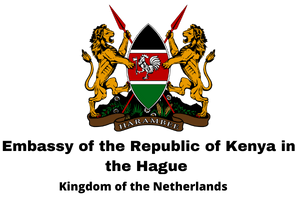Key Sectors
Agriculture
In 2005/2006, Agriculture accounted for approximately 25 percent of Kenya’s GDP. Export of Agricultural and Horticultural produce, which essentially comprises of cut flowers and fresh vegetables, is growing very steadily. In the past five years, the horticulture sector has grown considerably and ranks among the country’s most sophisticated and best-developed industries. Six percent of the cut flowers are exported to The Netherlands to be re-exported again to other countries like, the United States and China. Tea and Coffee is another strong export earner in the Kenyan economy.
For more information on the Tea Industry in Kenya:
For more information on the Kenya Coffee Industry:
- Coffee Board of Kenya
- Coffee Plaza, Exchange Lane, off Haile Selassie Avenue
P.O. Box 30566-00100 Nairobi
Tel: 254-20-315818, Fax 254-20-311079
Tourism
Tourism has always been an integral part of Kenya’s economy, accounting for 12 percent of the total GDP. Tourism grew by an excellent 17.4 percent in fiscal 2005/2006 and brought in approximately $608 million cumulative revenue in the same period. Between 2007/June 2008, more than 17,000 visitors from the Netherlands traveled to Kenya. Overall, strong growth is attributed not just to continued demand for safaris and beach holidays from traditional European markets, but also from new markets such as China, India, Japan, and the Czech Republic.
Manufacturing
Manufacturing, which accounts for approximately a tenth of Kenya’s GDP, has been experiencing strong growth in the past five years. The sector’s positive results during the past two fiscal years were driven by growth in the production of cement (7.8 percent), processed milk (24.3 percent), tobacco products (19.9 percent) and beer (8.5 percent).
Construction and Real Estate
Demand for housing, particularly in urban areas, has continued to rise without requisite movement on the supply side. This has pushed prices up making the houses affordable to but a few.
The government is committed developing housing for every member of the society, as wells providing legal framework to promote further real estate investments. Demand for housing, has continued to rise while the supply barely accommodates the rising population. In the country’s quest to provide affordable shelter for everyone, there are many construction projects, which need investment. There are diverse ways to acquire or invest in the real estate in Kenya.
For more information on these sectors contact:
- Namanga Road properties: http://www.namangaroad.com/index.html
- Hass Consult Real Estate: http://www.hassconsult.co.ke
- The National Housing Corporation (NHC): http://nhckenya.co.ke
Telecommunications and ICT
Transport and communications are approximately 11 percent of GDP. Transport experienced moderate growth in 2005/2006. The telecommunications sub-sector continues to grow strongly – total mobile phone subscribers increased from 7,340,317 subscribers in 2006, to 11,986,007 by 2008. This is approximately 35 percent of Kenya’s population.
For further information peruse the website of the Communication Commission of Kenya (CCK). Link www.cck.go.ke
Roads
In the ‘Vision 2030’ which aims to make Kenya ‘a globally competitive and prosperous nation with a high quality of life‘ in the next 25 years, roads are to act as ‘enabler’ that will aid six sectors that are to be the backbone of the Vision, namely, tourism, agriculture, wholesale, retail, manufacturing, promotion of local investment potential and financial services.
As part of vision 2030, the improvement of roads, create and support a business environment that facilitates private sector investment, growth, and job creation. An integrated road system within the country and with the neighboring countries heavily utilizes roads for transportation of goods and services. Adequate provision of roads is therefore essential to enhance sustainable economic and social development.
